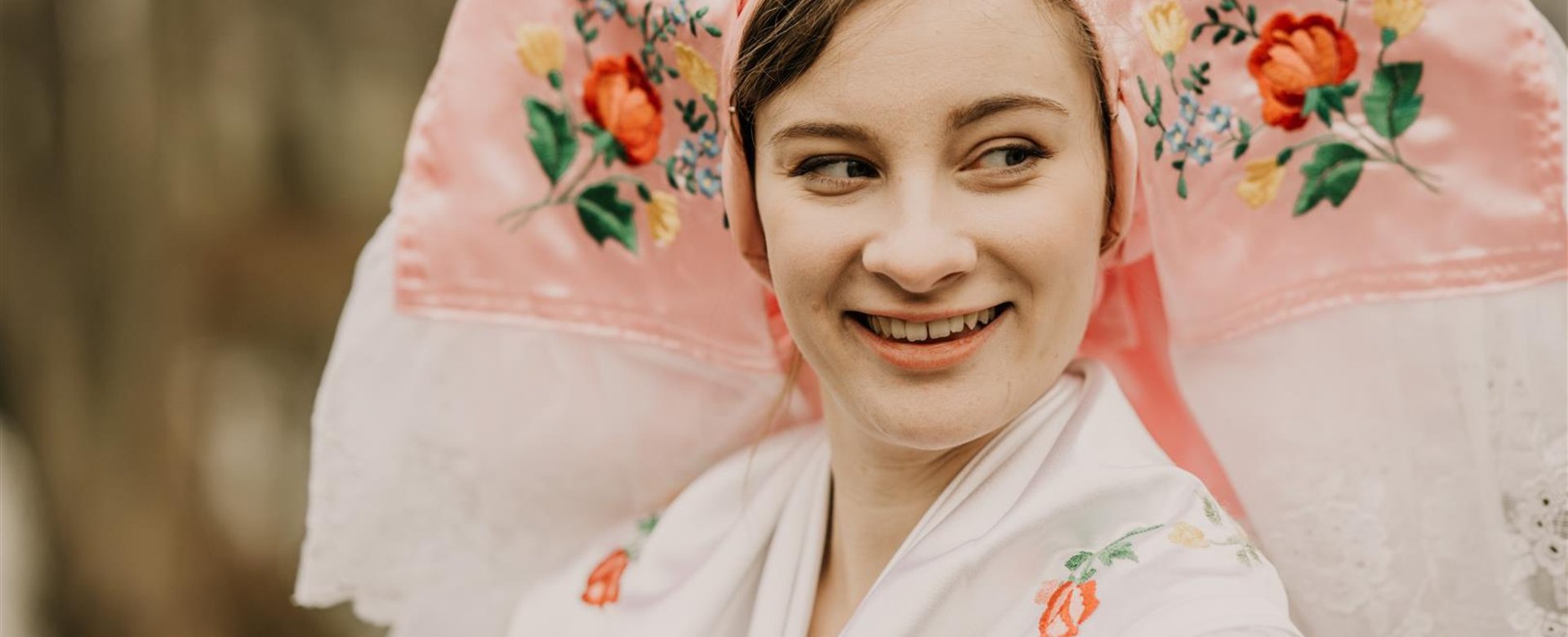Sorbs & Wends
The Sorbs/Wends belong to the Slavic tribes that settled in the Spreewald in the 6th century and are still inseparably linked with the region today. For many holidaymakers, this is first reflected in the bilingual signage, as the Slavic language has survived in the region to this day. About 60,000 people of Sorbian origin still live in the Spreewald today, some of whom still speak the Sorbian language.
In addition, there are numerous testimonies to early settlement, such as the Slavic castle ramparts that run through the region. The striking Wendish settlements also make the Spreewald unique, as the traditional half-timbered architecture with single-storey houses and rectangular windows has become a real trademark of the Spreewald.
